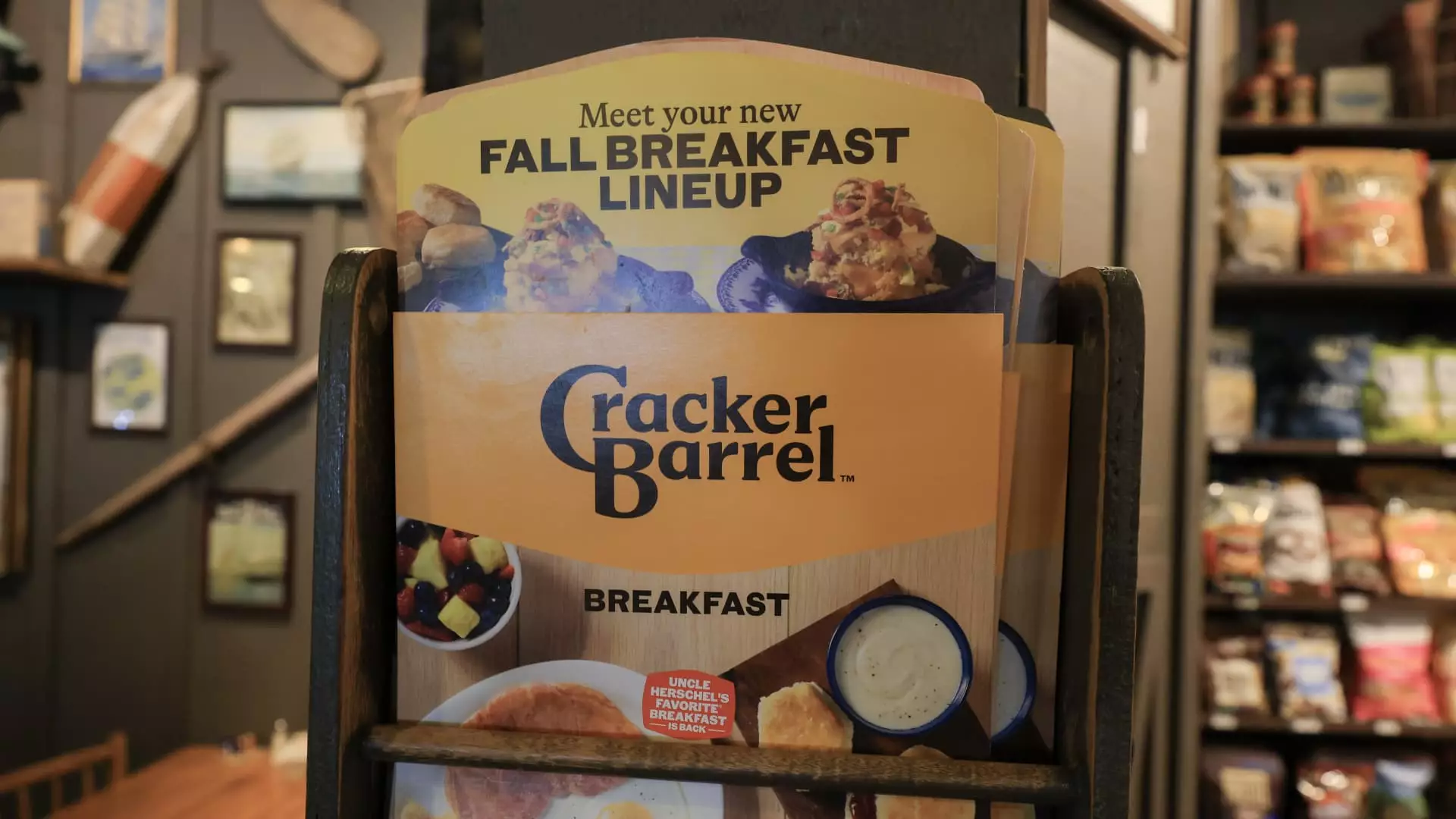Cracker Barrel, a symbol of American comfort and tradition, recently faced a swift and severe backlash following its attempt to modernize its brand image through a revamped logo. The company’s decision to strip away the familiar imagery—a man leaning on a barrel—replaces the nostalgic charm with a stark, unadorned wordmark on a yellow background. This move, ostensibly part of a broader “strategic transformation,” appears to disregard the core values that built the brand’s loyal customer base. Instead of embracing its roots, Cracker Barrel’s new visual identity risks alienating its traditional audience, who value authenticity and a sense of American heritage. The removal of the phrase “old country store” further dilutes the brand’s identity, signaling a departure from its storied history. The reaction was swift and overwhelmingly negative, with a significant drop in stock valuation indicating investor concern about alienating core consumers.
Social Media’s Angry Chorus and Political Overtones
The public’s response, particularly from social media users, has been largely critical, with many viewing the change as a symptom of broader cultural trends to erase or diminish American tradition. Notably, Donald Trump Jr. accused the company’s leadership of deliberately erasing patriotic elements to align with progressive narratives on diversity and inclusion. Such claims reflect a deeper fault line in American culture—where brands become battlegrounds for ideological disputes. Critics argue that these logo changes are less about genuine innovation and more about capitulating to woke ideology, which they believe undermines the values that made the brand beloved. Conservative commentators have been vocal, with figures like Robby Starbuck claiming that “wokeness really doesn’t pay,” implying that the brand’s attempt to appear progressive is ultimately damaging and out of touch with its core customer base. In this cultural climate, branding decisions are increasingly scrutinized as symbols of political identity.
Interior Redesign and Market Response: A Missed Opportunity?
Beyond the logo, Cracker Barrel’s interior redesign has also come under fire. The company claims that the remodels are aimed at creating brighter, more welcoming spaces, yet customers often find these refreshes sterile and devoid of the warm, country feel that originally distinguished the chain. These changes suggest a troubling tendency among some brands to prioritize modern aesthetics over tradition, often at the expense of consumer loyalty. With a market cap of approximately $1.2 billion, Cracker Barrel’s share price volatility reflects growing frustration among its patrons and investors alike. The company’s move to update the physical experience seems disconnected from the emotional attachment that has historically driven its success. While leadership promises more remodels and future updates, the pattern of dissatisfaction hints that the company may be abandoning its most valuable asset: its Americana charm.
Broader Implications for American Brands in a Divided Culture
Cracker Barrel’s struggles exemplify a wider phenomenon where cultural politics heavily influence corporate branding and consumer perception. While some see modernization as necessary for relevance, others interpret these efforts as capitulation to progressive pressures that threaten to erode traditional American values. The company’s relatively small market value compared to competitors underscores how fragile consumer goodwill can be in this polarized environment. Other brands, like Anheuser-Busch InBev and American Eagle, have experienced similar turbulence when attempting to navigate these politically charged waters. Cracker Barrel’s misstep, therefore, is emblematic of a broader challenge facing American businesses: balancing authentic heritage with the pressures of a divided society that often views corporate moves through ideological lenses. If the company continues to alienate its core audience under the guise of progress, it risks permanently damaging its reputation and legacy.

